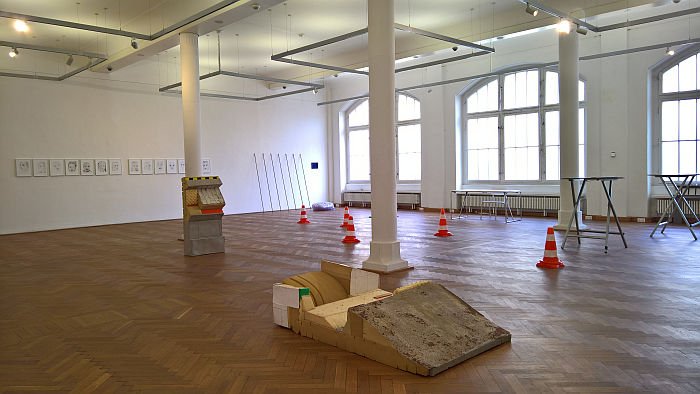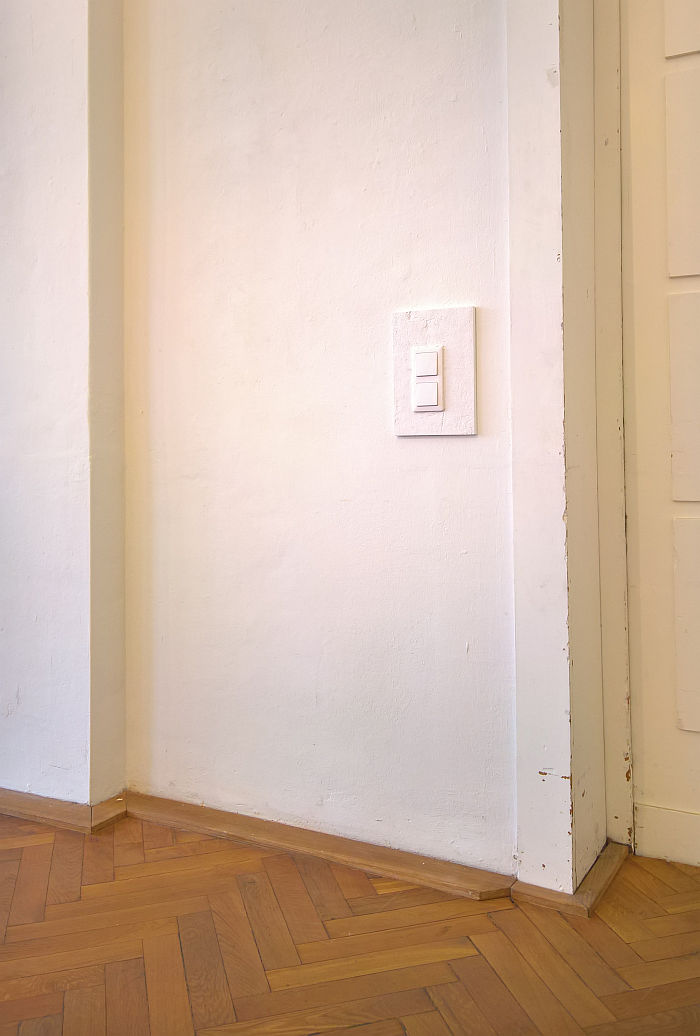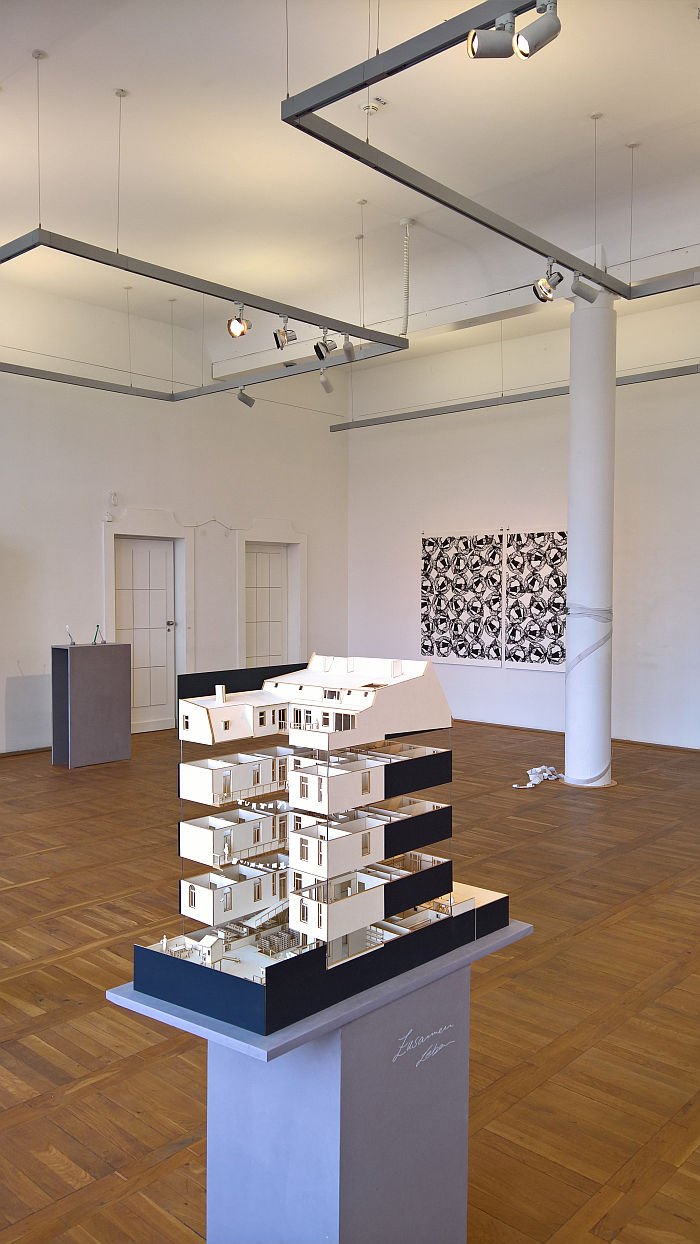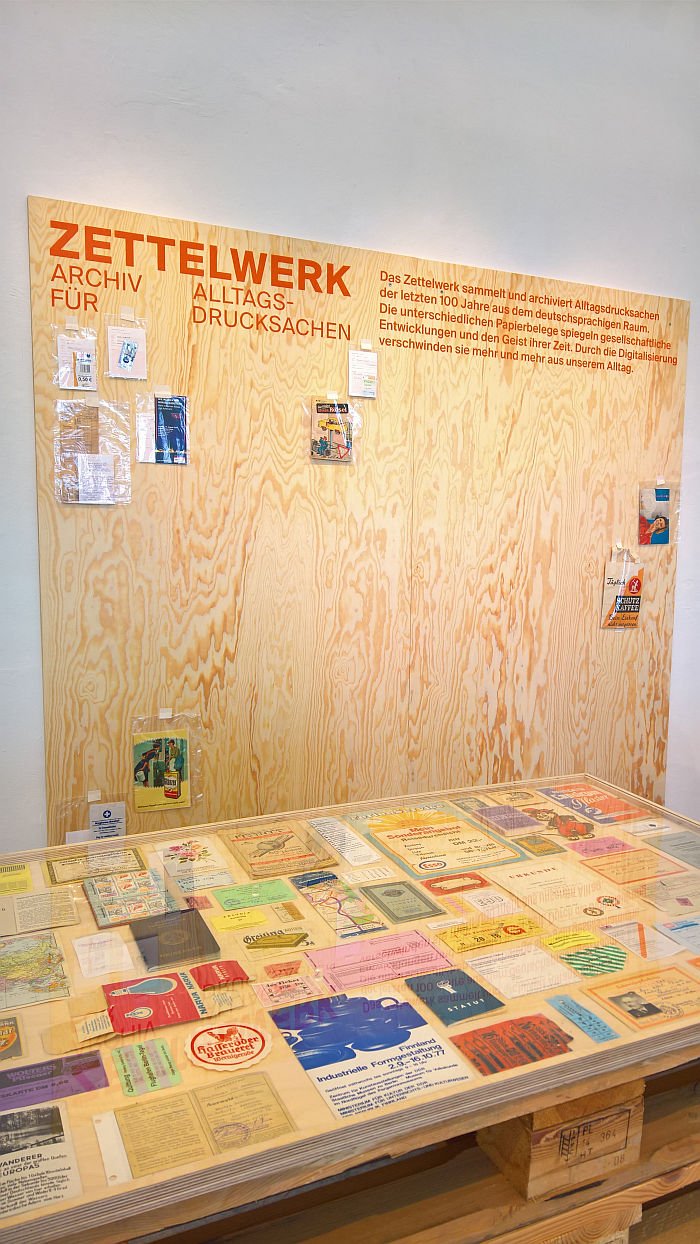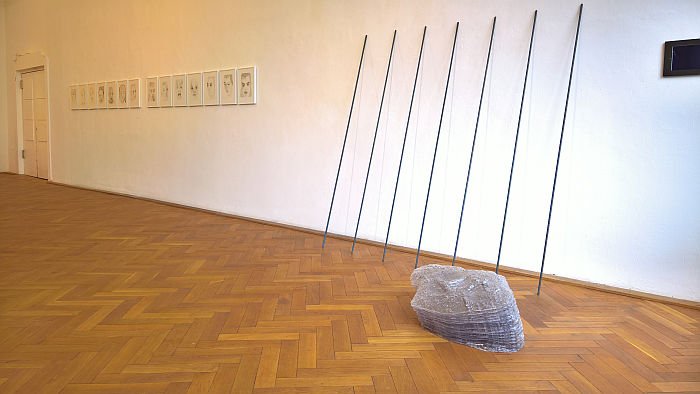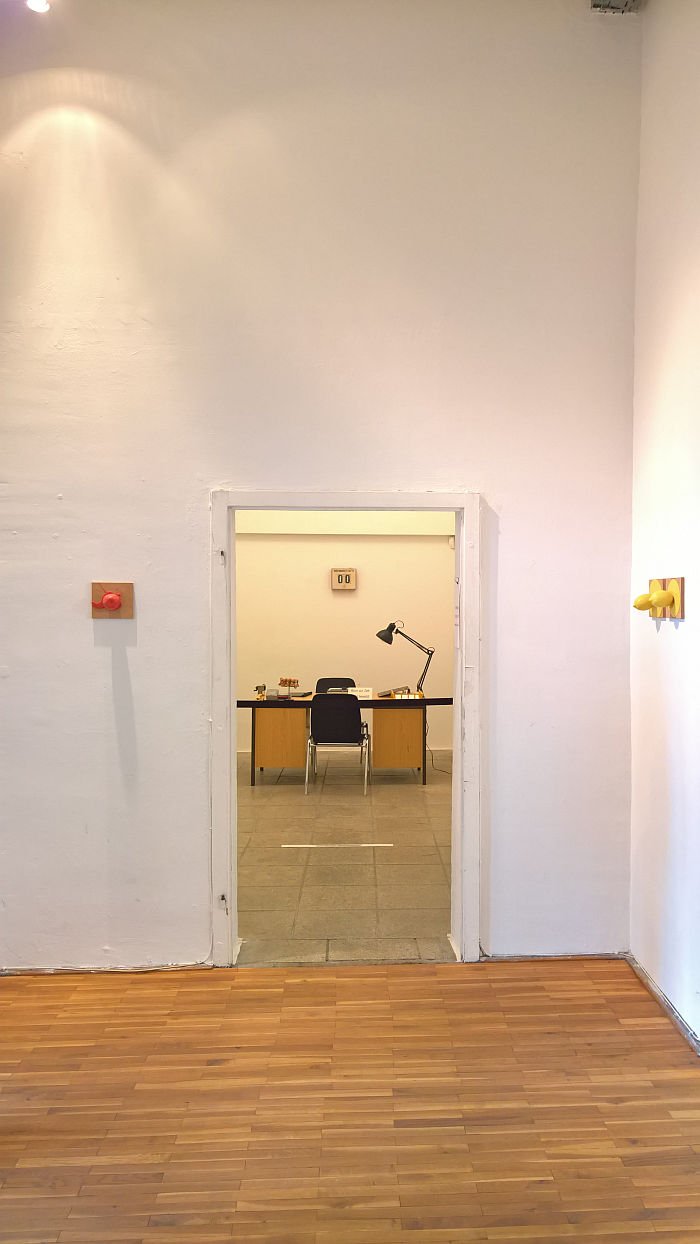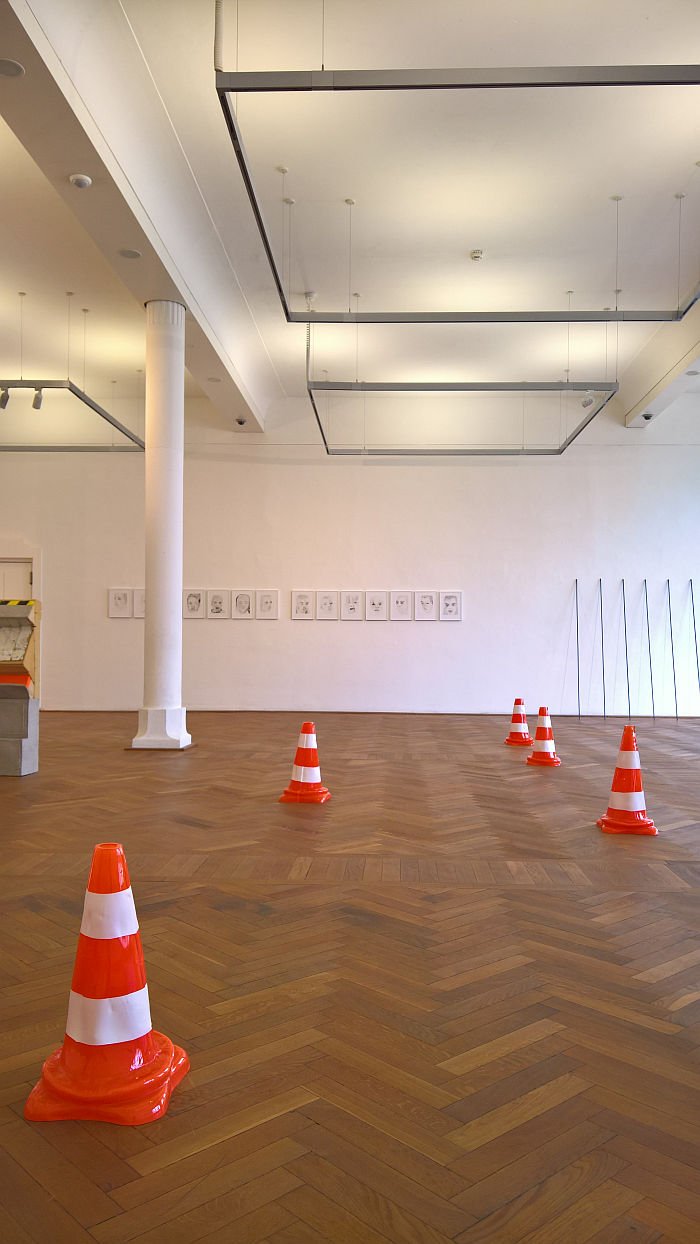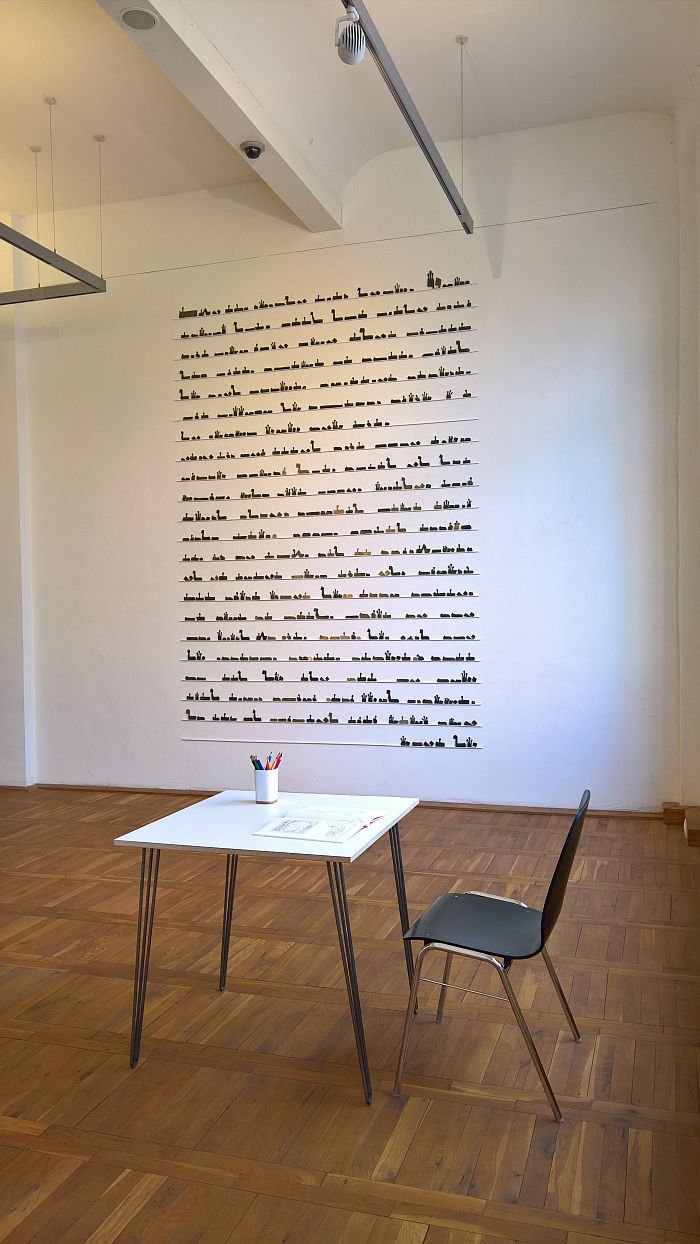The Burg Galerie im Volkspark Halle is open every day, is täglich geöffnet; and with their new exhibition, opens the every day: presenting artistic and design reflections on daily routine(s), the Alltag, and in doing so allows for new perspectives on the what, wherewith and wherefore of our (perceived) daily realities.....
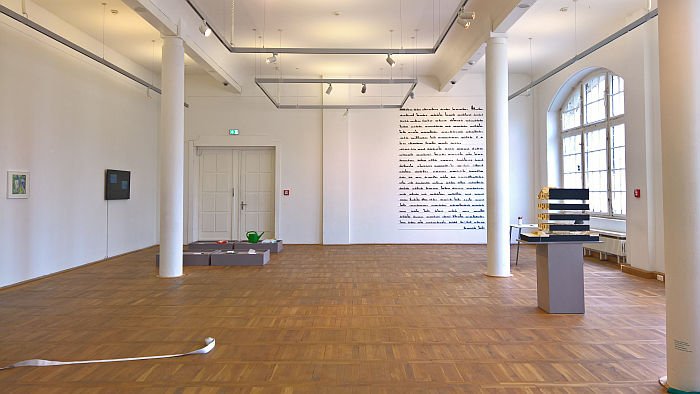
The first in a series of exhibitions being staged throughout 2019 under the title, ABC, täglich geöffnet presents 26 projects by current and past Burg Giebichenstein Halle students, projects selected by a jury from an open call, and projects which, or at least the vast majority of which, explore understandings of our daily routine(s), our Alltag, by taking them out of their accepted contexts, abstracting them to varying degrees and thereby enabling a much more differentiated, distant, and thus more focussed, concentrated, understanding of that which one unthinkingly does and sees on a daily basis.
Presenting a broad mix of genres, approaches and positions, täglich geöffnet on the one hand nicely underscores the variety of ways in which the daily is, and can be, understood, that despite the fact we all undertake similar tasks on a daily basis, we all have our own understanding of our daily routines, our own daily realities, and on the other makes patently clear that despite this variety all our daily lives share one fundamental element: banality.
Yes we all know that our daily existence is mind-numbingly banal, but we all pretend it is otherwise. As a collection of projects, a collection of positions and abstractions, täglich geöffnet confronts us with the fact that we all know that banality is real, it is inescapably laid before us, as is the accusation that the banality of daily life is in many regards a veil we ourselves spread in order to cloak the true complexity of life, a complexity we understand we probably should deal more openly with, but arguably all fear doing. And so rather embrace the comfort and security of banality as a means to master our Alltag. And a banality that evolves with us, and with social, cultural and technical progress.
And a state of affairs very neatly embodied by etwas, das aussieht wie ein lichtschalter [something, which looks like a light switch] by Bild, Raum, Objekt, Glas student Miriam Albert and which is a plaster cast of, and which thus logically looks like, a light switch: one of the most banal objects imaginable, one which has an established place in everyone's daily routine, we all have at least one light switch we use at the same time every day; yet an object which, as Miriam points out, will become superfluous, an object we can't imagine living without will become one we can't imagine living with. But which we will, inevitably, replace with something equally as important to our daily routine. Something, which may not look look like a light switch, but which will have the same relevance to us, just in a new context.
Thoughts which very neatly link into Zettelwerk, Archive for Everyday Printed Matter, a project at Burg Halle which has set itself the task of collecting all those paper tickets, passes, receipts, permits, et al which are increasingly becoming digital and which will therefore eventually vanish from our daily routine, or at least will as conscious physical objects, which will however, invariably, become some new action/gesture.
Aside from introducing the Zettelwerk project, täglich geöffnet encourages all visitors to contribute to it, to add any endangered paper objects you may have to the collection, and thereby help establish a physical resource to explain to future ten year olds that bus tickets, library cards and money really were once physical objects. And once had a completely different relevance to our daily routines, to daily routines that on account of the change from analogue to digital are no longer what they once were. If are as every bit as banal as they ever were.
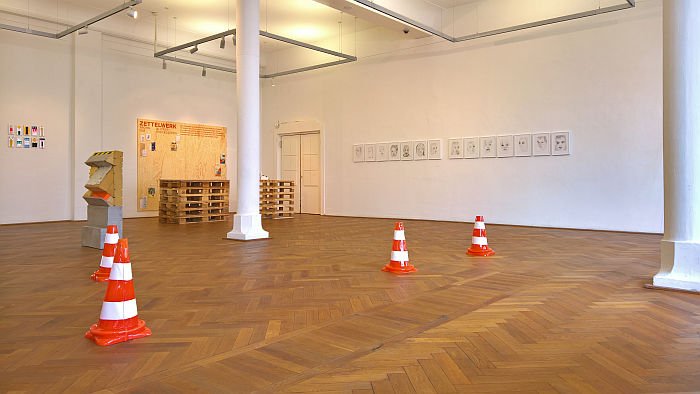
In addition to such reflections on the transiency of daily routines, täglich geöffnet also reflects on some of the more permanent banality of our Alltag. With Pylonen, for example, Julia Tiefenbach has created a series of glass traffic cones which through marking off an area of nothing, very neatly remind us that the dangers and pitfalls of everyday life needn't be major, might just be dribbling toothpaste down your front, or forgetting to buy milk; in the short film ritornel Zeitbasierte Künst student Binha Haase documents the (apparently) banal life of a North Korean music student in Berlin, a banality which however not only hides a much more complex reality, but a banality which relies on all manner of structures, fears and rituals in order to do such, structures, fears and rituals we all develop to maintain our own banality. Then there is Hole-o-Fame by Malerei/Textile Künste student Melanie Schulz.
Starting from a fascination - her word, not ours - with potholes, Melanie has created a series of plastic impressions of some of those examples to be found in Halle. Presumably ones she can particularly engage with, or perhaps more probably, regularly has to avoid, regularly tries not to engage with. While admittedly not the first project we've seen and enjoyed involving potholes, the Pothole Lamps by Leipzig based diefabrik remaining one of our favourite site specific product design concepts, what particularly appealed to us about Hole-o-Fame, aside from the very obvious comment on the state of urban regeneration in Halle, was the promise of an app, complete with interactive map, to guide you to the potholes of Halle. And thus an application which allows one to experience Halle not (just) as the city of Georg Friedrich Händel, salt and chocolate. But of potholes. A thoroughly, thoroughly, banal way to explore a city, yet one which offers the promise of a much more differentiated understanding of Halle, of Halle as a city of banal daily existence.
Elsewhere, and amongst many other projects and positions, Industrial Design student Alexia von Salomon presents with scho a recyclable toothbrush concept; with Zusammenleben Laura Beier presents a communal living/work/freetime concept that wouldn't look out of place in the exhibition Together. The new architecture of the collective; the colouring book Schweineglück by Sandra Méndez Sarmiento "playfully" explores the contrast between our relationships to domestic pets and commercial livestock; and with their Handlungspakete Kevin Strüber and Max Stalter present a series of actions/tasks/suggestions which aim to allow for new interactions with daily objects and therefore open up new understandings of the objects, the nature of our interaction with such and thus their role in our Alltag. Packet #8 suggesting one spends an evening celebrating, solemnising and enjoying a large bag of crisps as a conduit by which to reflect on your day.
Which is, as oft noted, exactly how every day in the smow blog office ends. Is our daily routine. Our Alltag. Our glorious, comforting banality, veiling a complexity we know all too well exists, but which we dare not approach. A structured, confirming ritual. And thus something which although works for us, isn't something we can necessarily recommend; reflecting on such, and the other positions presented in täglich geöffnet, and then extrapolating those reflections into your own daily routine, opening your every day to new perspectives and questioning the what, wherewith and wherefore of your Alltag, is however something we can recommend.
And is anything but banal, except it is........
täglich geöffnet is, well, open every day, or at least until March 31st at Burg Galerie im Volkspark, Schleifweg 8a, 06114 Halle.
Full details, including opening times and information on the accompanying programme, can be found at www.burg-halle.de/burg-galerie
